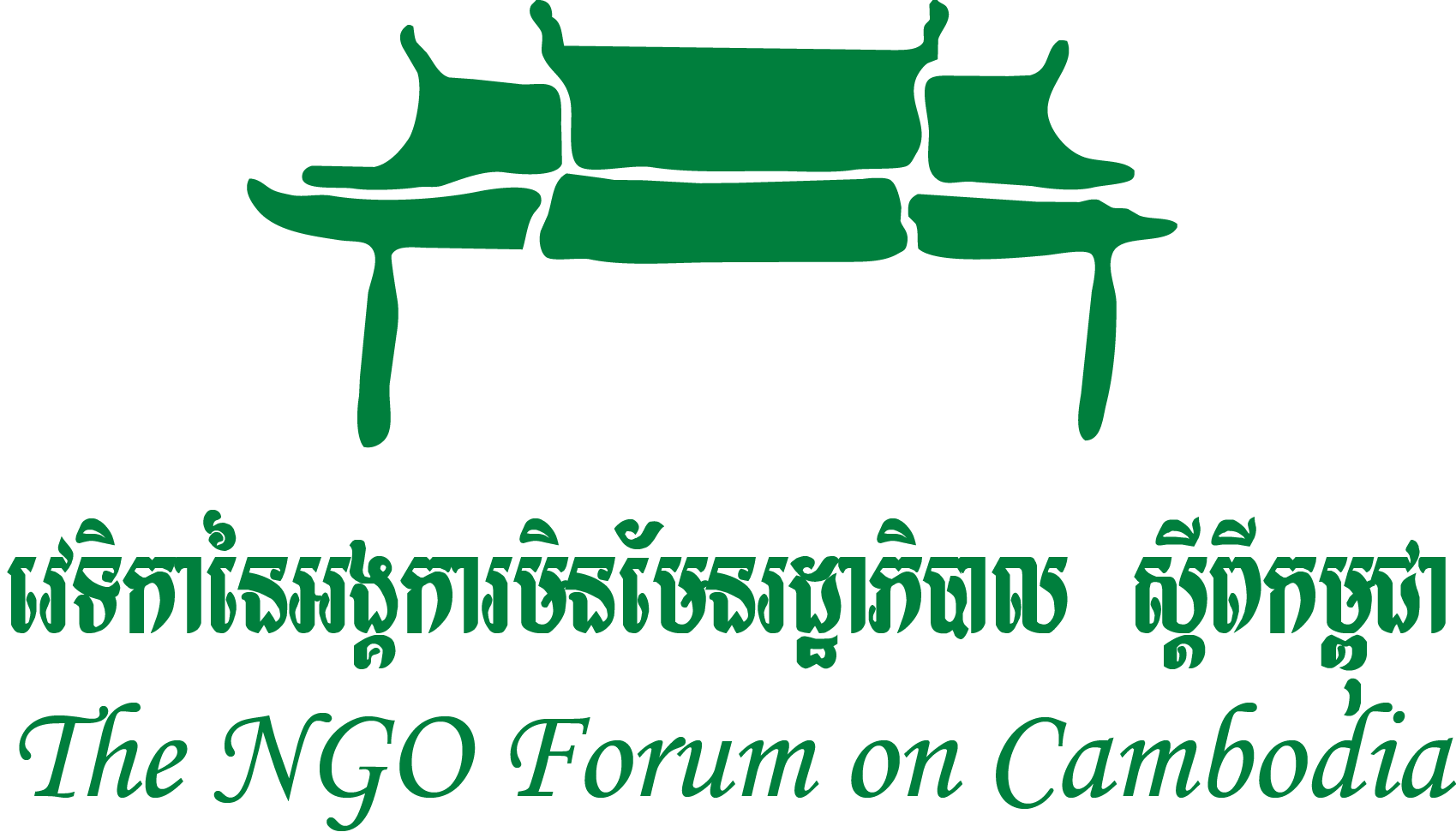[:en]Non-State Actor Workshop on National Validation Workshop on Forest Governance Assessment and Situational Analysis[:]
- ngofmail
- Jan 12, 2018
- 3 min read
<:en>

The Mekong region is home to an estimated 85 million forest-dependent people, of whom more than a third are indigenous peoples. Overall, an estimated 30% of the rural population in the region is living in poverty. Forest loss averaged 4.9% between 1990 and 2015, with forest communities in the Mekong region facing many challenges in ensuring that they can make a sustainable living from the forest landscapes.
In Cambodia, the extent and quality of forest has declined in the recent decades due to logging, forest fires, land-grabbing, encroachment and intensified shifting cultivation. The 73% percent of the total land area forest in 1960s decreased to 61% in 2002 and continued to 49% in 2014. Cambodia’s forests constituted Protected Area under jurisdiction of Ministry of Environment (MoE) and production forest under jurisdiction of Ministry of Agriculture, Forestry and Fishery (MAFF). A number of policies, laws and regulation were developed for governing and managing forest in the country. These include forest policies (2000), Land Law (2001), forestry law (2002), Protected Area Law (2008), various sub-decree and Prakas (CF sub-decree, CPA guideline, Economic Land Concession sub-decree, Social land concession sub-decree etc.), National Forest Program 2010-2030, National Protected Area System Strategic Management Framework (2014), National REDD+ Strategy (2017). In addition, there are also ongoing processes to develop new and improve existing forest sector related policies. Development of Environment and Natural Resource Code, Amendment of Forestry and Protected Area Law, formulation of Production forest strategy, are among ongoing process that aim to enhance forest policies in Cambodia responding to emerging issues and challenges today.

There are many initiatives trying to support the efforts of local forest communities, while at the same time trying to address illegal logging, deforestation and forest degradation, rural poverty, and protecting biodiversity. At the heart of these efforts is governance. Without strong governance, built on foundations that include effective participation, transparency and accountability, these efforts are proven time and again to fail. Civil society plays a fundamental role in strengthening forest governance. In recognition of this, the European Union is supporting the project ‘Strengthening NSAs’ voices for improved forest governance in the Mekong region’ also known as Voice for Mekong Forest (V4MF). The project is implemented by RECOFTC, WWF-GMS, and national partners in five Mekong countries in which Cambodia in one of them (Cambodia, Lao, Myanmar, Thailand and Viet Nam). In Cambodia, NGO Forum on Cambodia is the national partner responsible for in-country implementation with technical support from RECOFTC and WWF-GMS.

V4MF will be implemented for five years 2017-2021 and now is in its baseline phase of assessing forest governance situation that will provide opportunity for project to understand the current state of forest governance in Cambodia. This will enable project to identify and design effective intervention for improving forest governance in the course of its implementation as well as contribute to achieving its objective on empowered and networked NSAs in three transboundary landscapes assess, monitor and respond appropriately to strengthen forest governance, particularly in FLEGT-VPA and REDD+, and effectively engage in policy processes.
On 12 January 2018, Tonle Bassac II restaurant, Mr. Ear Chong, Land and Forest Program Manager of NGO Forum gave introduction of workshop objectives, methodology and details program agenda. The workshop was taken a full day from 08:00 am to 05:00 pm which supposed to have full participation of all respective guests to join hand in assessing the situation of forest governance and provides input/comments for improvement. Mr. Chong then has encouraged participants to introduce themselves to getting know each other as all of them need to work in group to assess and scoring on each pillar of forest governance.

To give the context of the workshop, First and foremost, the workshop was opening by Mr. Thibault, Regional Forest Coordinator of WWF. Thanks present of respective participants from CSOs, community and private sector, he provided the introduction of project overview including project objective, target areas transboundary landscapes and key activities. Mr. Thibault then stated that project will develop forest governance monitoring system which is come up in positive way to recover and improve the situation, and finding appropriate resolution. Plus, this workshop would assume to have input and feedback from all participants to assess forest governance situation in Cambodia and its result won’t be publish at all, Mr. Thibault’s said.

Mr. Tol Sokchea, Training Coordinator of RECOFTC-Cambodia has shared V4MF a activities and status in Cambodia. The presentation focused on implementating partners in Cambodia (NGO Forum, WWF, and RECOFTC) and target area in Eastern Plains Landscapes located in Mondulkiri Province, and implementation progress for year one (baseline phase on inception, forest governance situational analysis, and capacity development needs assessment for NSA).

At the end of workshop, the facilitator confirmed that the result of this consultation will be sharing to all participants/institutions that contributed their times and input/experiences to this assessment. <:>




